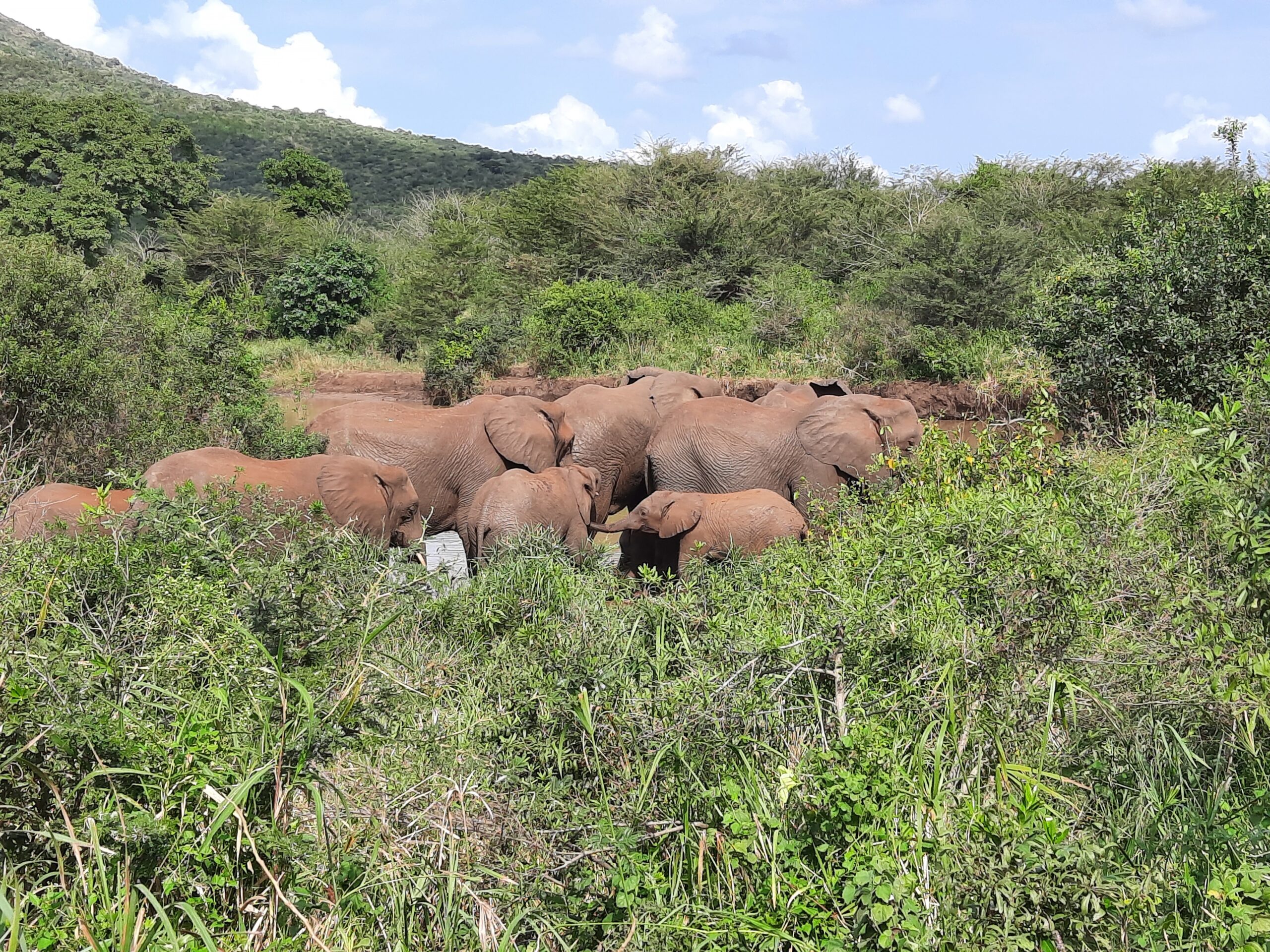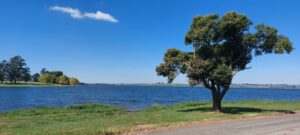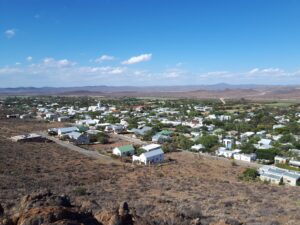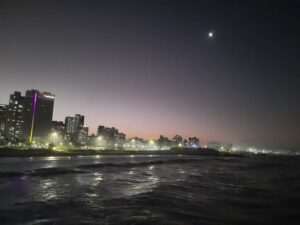Close your eyes and picture the scene at Hluhluwe-Imfolozi Park: a serene setting where a lazy river winds its way through the landscape, flanked by lush banks covered by dense bush on one side, while an open grassy picnic site lies on the other. Time seems to stand still, enveloped in a tranquil stillness.
A powerful sound shatters the peace. The loud and commanding trumpet of an elephant pierces the silence, echoing across the landscape. In an instant, the serenity gives way to a thrilling display. One by one, these majestic giants gracefully make their way toward the river. As the elephants step into the refreshing embrace of the water their immense bodies sway and dance. The river becomes their playground, their haven of pure joy.
Just a story? No. During a recent expedition to the Park, we were blessed with an extraordinary encounter with elephants that will forever be etched in our memories.
Enchanting Hluhluwe-Imfolozi Park
One of the marvellous parts of exploring game parks is the element of delightful unpredictability. Unlike meticulously planned visits to museums and similar attractions, the wildlife experience is a constant surprise, where each day brings its own unique adventure. Sometimes, the animals seem to be everywhere, behind every bush, while on other occasions, it feels as if they’ve gone into hiding.
Hluhluwe-Imfolozi Park has always held a special place in our hearts. The Park seems to have it all – stunning scenery, amazing animals and a variety of gorgeous birds. It was where we spent our honeymoon and holds many happy memories. We return frequently and each visit is a completely different experience.
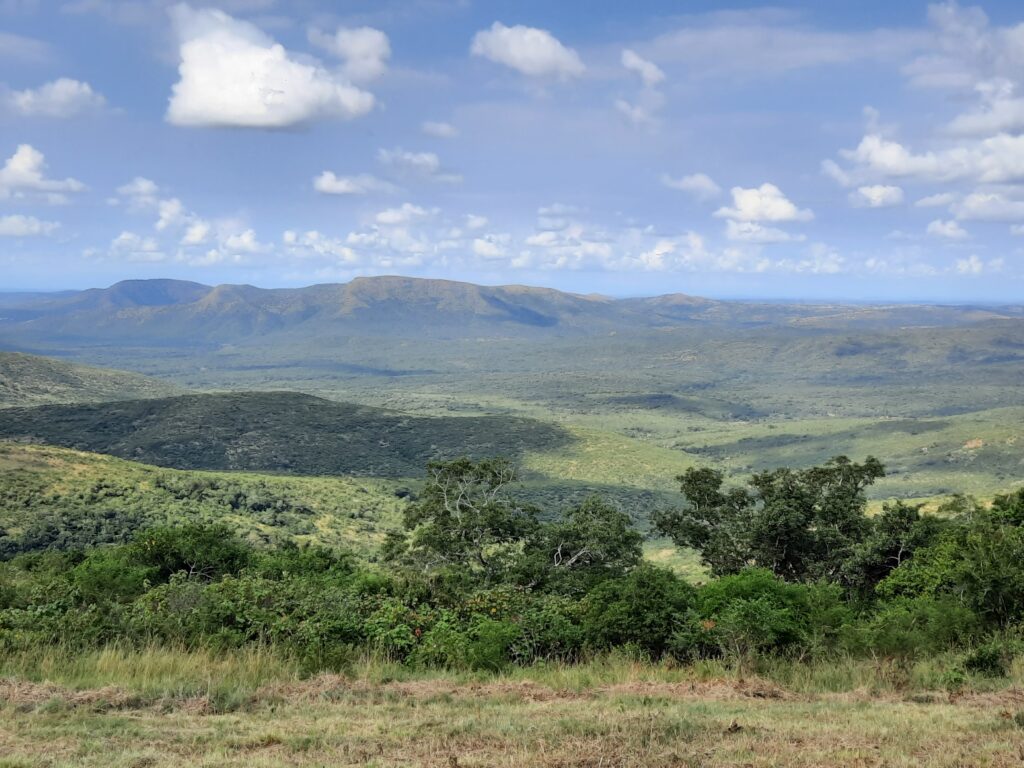
A Weekend Away
On this occasion, it was the end of a busy week. We needed to get away for the weekend. Gary had booked a quaint little place for us to stay for the night, the Lebombo Wattle Forest Cottage. We left early on Saturday morning as Hluhluwe is a three-hour drive from Durban. Stopping at St Lucia on the way ensured that we had a full day of travelling.
The following day we again set out early for our journey into the reserve. We entered via Memorial Gate in the north, planning on driving through the Park before making our way home later on in the day.
Security is always tight at the gates to the reserve. The threat of poachers arriving disguised as tourists is a real problem, so boots and cars are searched.
Encountering The Elephants
The northern section of the reserve is hilly with sheer ridges and bushveld valleys. We headed straight for Maphumulo Picnic Site, as we often do. Maphumulo is on the banks of the Hluhluwe River, so there is always a good chance of seeing animals coming down to the river to drink. At the very least, you’ll see hippos wallowing in the water.
When we arrived, we found the picnic site relatively empty. One couple was just leaving and another family were walking towards the river. We were disappointed to find Park officials setting up a generator and water pump, getting ready to pump water from the river to elsewhere in the reserve. With that noise, we wouldn’t see much.
Nevertheless, we were determined to enjoy the peace while we could. We wandered down to the river, but couldn’t see any animals – not even a hippo. Knowing that we would have to be patient we sat down on the banks and waited.
Convinced that there were no animals to be seen, the other family left.
And that’s when we heard the first trumpet. Jumping to our feet we moved towards the sound, coming from the opposite side of the river. The trees were moving and the trumpeting drew closer. At last, they emerged from the trees and plunged into the river. They just kept coming – mothers and their calves, together with bulls. Watching them was pure joy.
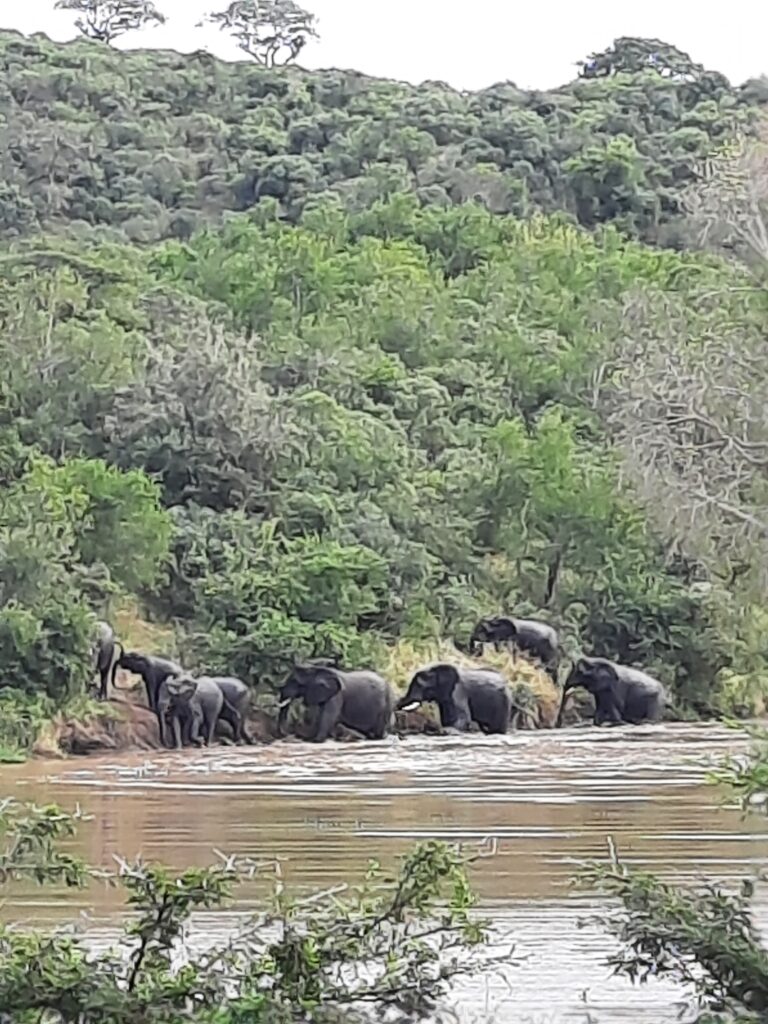
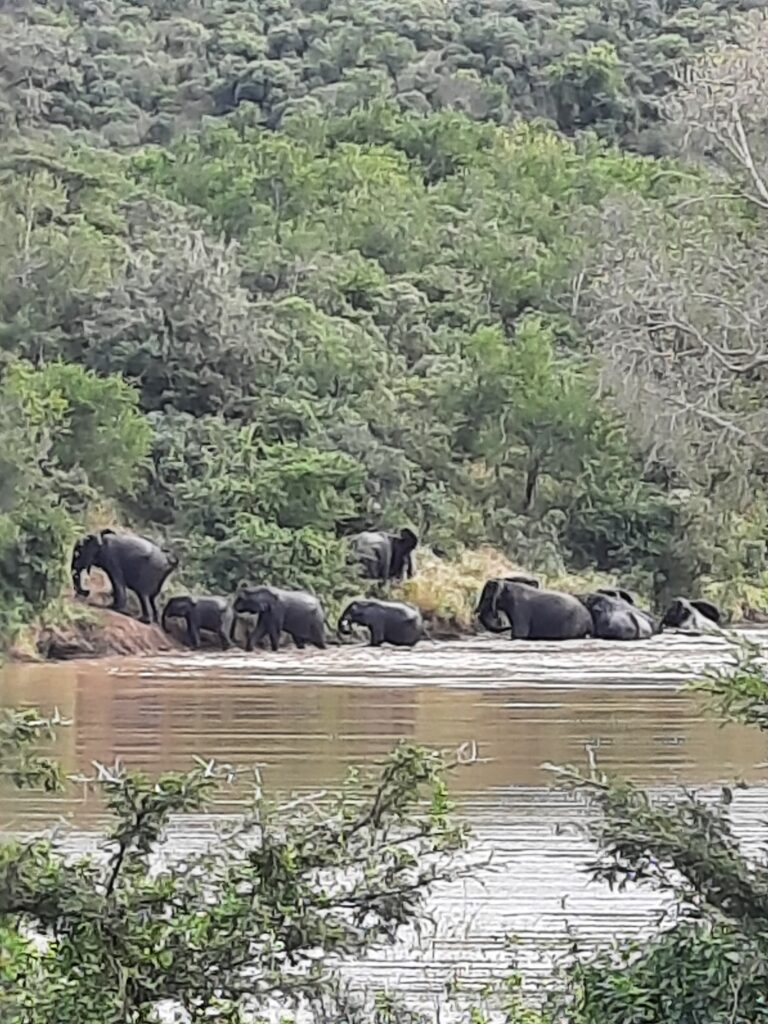
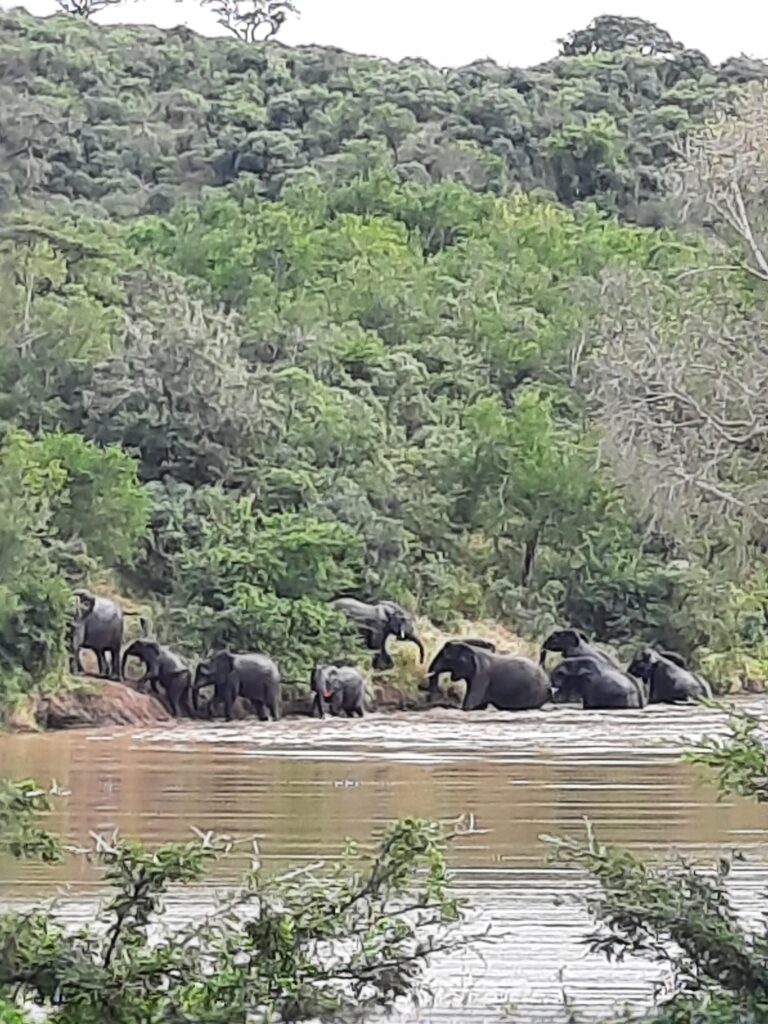
They played for a while and then disappeared into the bush on the opposite bank. Exhilarated we jumped into the car, thinking we would drive around and follow them on the other side of the river. No sooner had we driven a few metres, than we had to stop. The next herd were crossing the road in front of us heading for the river. We continued following them until they disappeared completely.
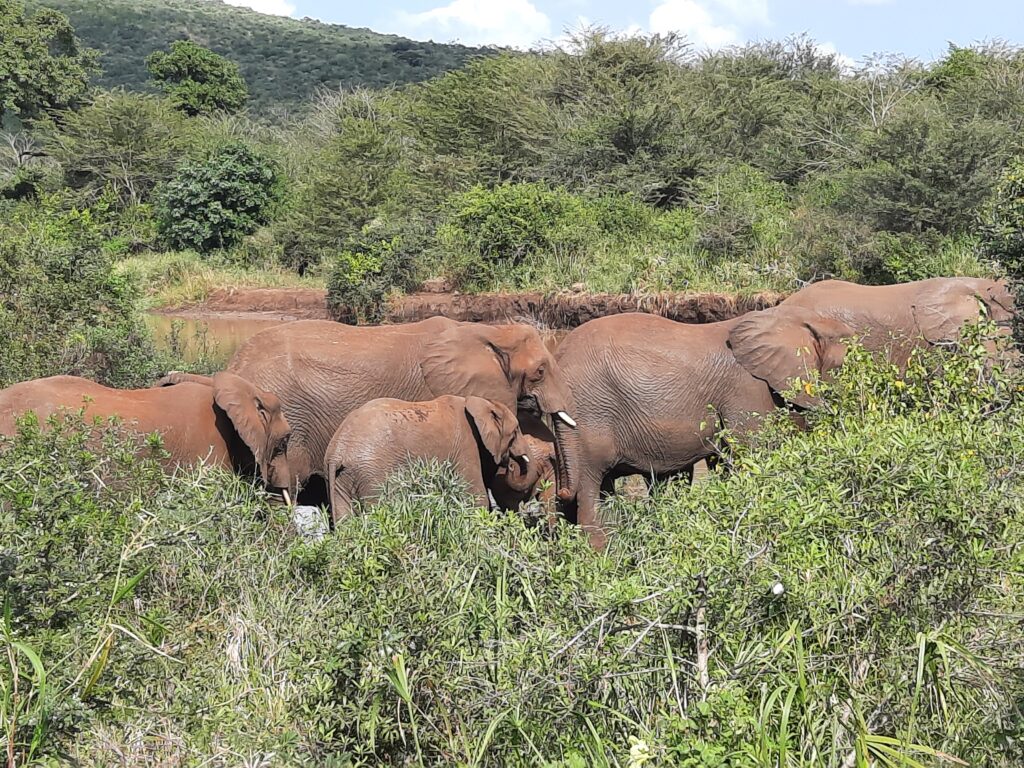
Coming so close to these amazing beasts, we found our spirits were lifted, and we felt it didn’t matter what else we saw or experienced. Being able to spend time admiring the elephants made our day!
Where Is Hluhluwe-Imfolozi Park?
Located three hours north of the coastal city of Durban, in KwaZulu-Natal, Hluhluwe-Imfolozi Park is near the town of Mtubatuba and the St Lucia Estuary.
For those planning a visit, the park can be accessed through three entry points. Gate access points are strategically located, allowing visitors to enter from different directions and explore the vast expanse of the reserve. Memorial Gate in the north serves as a popular entry point, providing convenient access to the park’s wonders. Nyalazi Gate is the one visitors use when entering from the Durban side and is found in the Imfolozi part of the Park. Cengeni Gate is also found in the south, but on the western side of the reserve, and leads to northern KwaZulu-Natal.
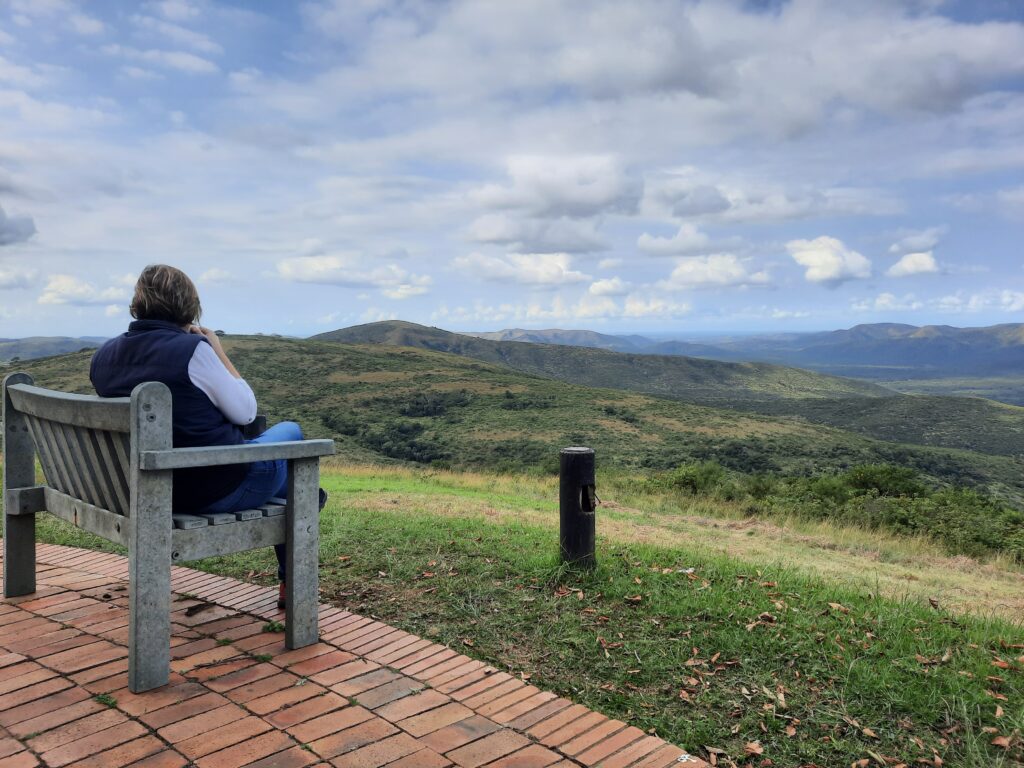
Hluhluwe-Imfolozi Accommodation
Inside Hluhluwe-Imfolozi Park, accommodation options include two large camps, Hilltop and Mpila Camps, as well as several smaller venues. Hilltop Camp, located in the northern Hluhluwe sector, is the only camp with a restaurant. Other camps are self-catering only. Bookings can be made on the Ezemvelo Wildlife site, http://www.kznwildlife.com/. (Unfortunately, their website is not secure, so I have not embedded the link.)
Hilltop Camp, our favourite, offers both self-catering and non-self-catering chalets. Accommodation bookings at Hilltop Camp now include bed and breakfast or dinner, bed & breakfast options. Guests also have the choice to add a package with dinner and/or a guided game drive in Hilltop’s open game drive vehicles. Alternatively, guests can explore the reserve by driving themselves on the network of dirt roads.
Perched on a hilltop, Hilltop Camp provides stunning panoramic views of the Hluhluwe-Imfolozi Park, the rolling hills of Zululand, Lake St Lucia, and the distant Indian Ocean. The camp’s higher altitude offers cooler temperatures compared to the low-lying bushveld. All chalets are equipped with air-conditioning, ensuring comfort throughout the year. The lofty thatch ceilings further contribute to a pleasant atmosphere, keeping the rooms cool in summer and warm in winter.
The on-site restaurant has always produced good quality food. When we lived in Richard’s Bay, we would often visit the Park on a Sunday and enjoy a delicious carvery lunch. An afternoon coffee and snacks can also be enjoyed out on the terrace, watching the birds of prey as they circle over the valley below.
Mtwazi Lodge, formerly the home of the Warden of Hluhluwe, is an exclusive 8-bed self-catering option located within the fenced perimeter of Hilltop Camp in Hluhluwe-IMfolozi Park. Situated on its own grounds, with a charming garden and expansive lawns, Mtwazi Lodge offers a private and tranquil retreat.
Located in the southern sector of the Hluhluwe-IMfolozi Park, Mpila Camp is the second largest camp in the reserve. Mpila Camp is exclusively a self-catering venue, without a restaurant on-site. Limited food and drink options are available from the Mpila camp shop.
Mpila Camp offers a wonderful location for visitors keen to explore the Imfolozi part of the Game Reserve. This area includes the highly sought-after Sontuli Loop, situated along the Mfolozi River, which attracts significant attention from wildlife enthusiasts.
Nselweni Bush Camp, positioned on a terrace with captivating views of the Black Mfolozi River, is a unique establishment created through a partnership with the local community and partially funded by the Conservation Levy collected from visitors to the Hluhluwe-Imfolozi Park.
Nselweni Bush Camp offers ten two-sleeper brick under-canvas accommodation units, each featuring an en-suite shower and toilet, as well as a private kitchen. These units are designed to accommodate a maximum of two persons per unit.
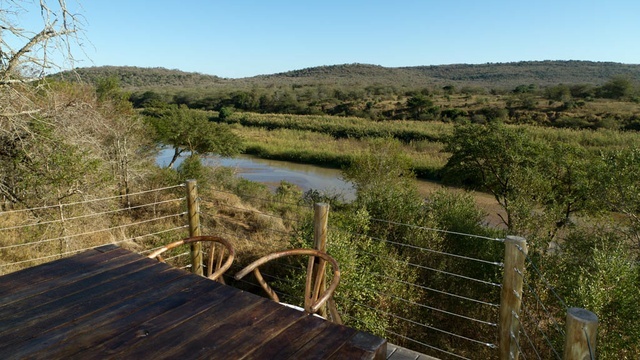
Visitors are responsible for bringing their own food and drinks, as there is no restaurant or supplies available at the camp. Water at Nselweni Bush Camp is not suitable for drinking.
The camp operates on a generator system, providing an electrical supply for fans and lights, while hot water showers, fridges, and stoves utilize gas. The generator is usually turned off around 22:00 to ensure a peaceful atmosphere.
It’s important to be aware that Nselweni Bush Camp is not fenced, aside from an electrified elephant wire. This means that potentially dangerous animals may enter the area, particularly during the night. We recommend bringing torches for visibility. In the evenings, hyenas may be present, while monkeys and baboons can be a nuisance during the day.
Masinda Lodge offers exclusive self-catering accommodation for eight people and has breathtaking panoramic views of the bushveld and rocky ridges to the south. This secluded retreat features three en-suite bedrooms, a fully equipped kitchen, a spacious lounge/dining room that opens onto an open veranda, and a barbecue (braai) facility for outdoor cooking. It is also unfenced.
Overlooking the Black Mfolozi River, Hlatikulu Bush Lodge offers a unique and exclusive experience in the heart of the Park. This secluded lodge provides unparalleled opportunities for exploring a lesser-known part of the Imfolozi section of the park. From the lodge’s deck, guests can enjoy sweeping views of the Black Mfolozi River, where sightings of crocodiles and hippos are not uncommon. Whether you’re sipping your morning coffee or gathering for sundowners in the evening, you’ll have the chance to witness a variety of animals emerging from the surrounding bush to quench their thirst at the river.
As a self-catering accommodation venue, it is essential to bring your own food and drinks. The lodge features an open lapa area and a barbecue (braai) facility, creating a cosy atmosphere where guests can gather around the fire beneath the starlit sky.
If you would prefer to stay outside the reserve, booking.com has a wide range of options.
Map of Hluhluwe-Imfolozi Park
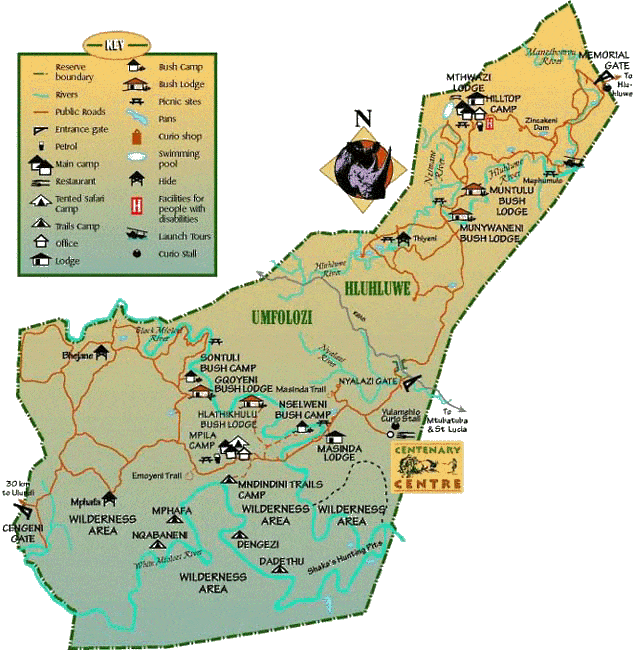
Gate Times
Visitors can enter the reserve between 05:00 and 19:00 in summer and 06:00 and 18:00 in winter.
Game Drives
Game drives at Hluhluwe-Imfolozi Park, are a must-do activity for visitors seeking an up-close encounter with the incredible wildlife. These exciting drives are conducted in 10-seater open viewing vehicles, allowing for unobstructed views of the park’s captivating landscapes and its majestic inhabitants.
Each game drive lasts approximately 2 to 2,5 hours, providing ample time to explore and discover the diverse wildlife that calls this reserve home. Whether it’s the iconic Big Five or the abundance of other fascinating species, the park offers an unforgettable safari experience.
In summer the drives are at 05:00 and 17:00, while in winter they are at 06:00 and 17:00.
Ricksha Tours offers a wonderful day trip to the Park if you prefer guided tours.
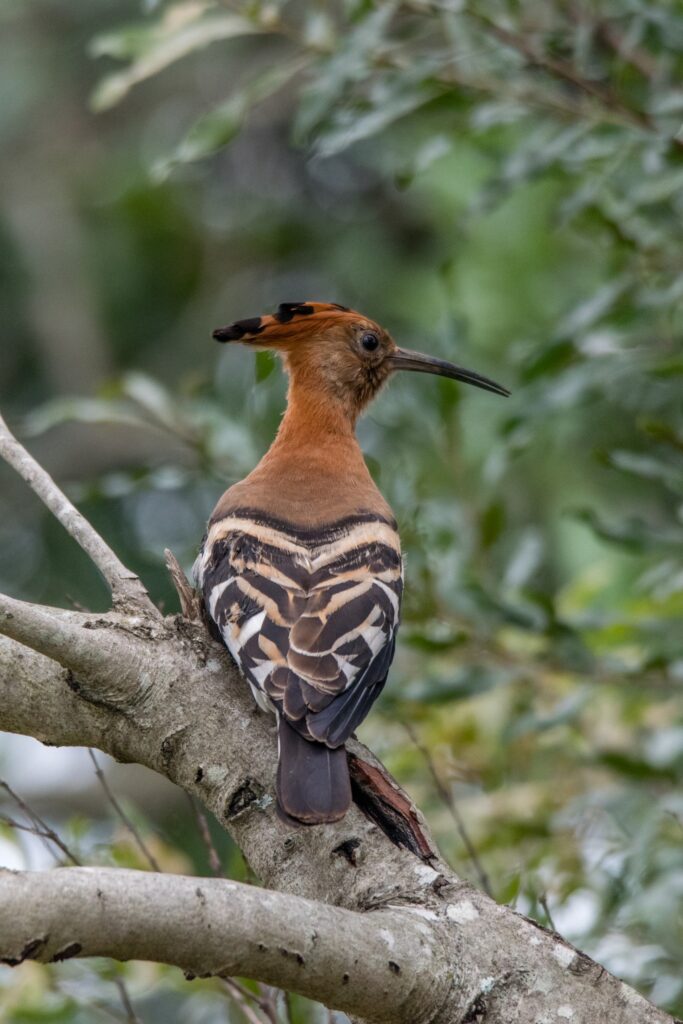
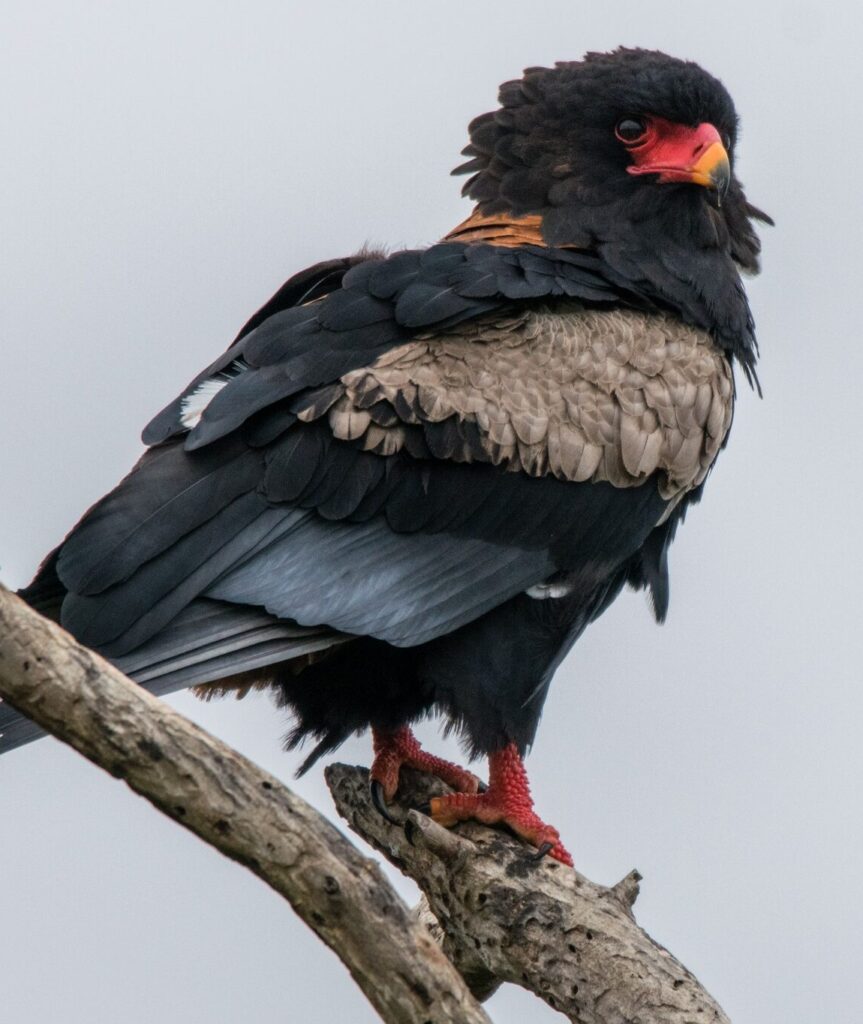
The variety of birds you can spot on a Game Drive or a Game Walk is astounding.
Game Walks
Daily game walks, led by experienced guides, are available at Hluhluwe-Imfolozi Park. Each walk has a maximum capacity of 8 participants. Participants must be 12 years and over.
During the summer months, the morning walk starts at 05:30, while the afternoon walk sets off at 15:30. In the winter the morning walk starts at 06:00 and the afternoon walk at 15:00. To join a game walk, you need to meet in front of the reception area 15 minutes before departure.
Best Time Of Year To Visit
The best time to visit the Park is from May to September, in the cooler, drier months. Animals will be out in the open and not hiding in the shade of trees.
Summer months (November to March) are sweltering and humid. Summer is also the rainy season, which makes animal viewing difficult.
What To Bring:
- Your own drinking water. Tap water in this area is not always safe, so we recommend bringing your own just in case.
- Mosquito repellent, especially in the rainy season.
- A map of the reserve. Detailed maps can be purchased at the gates.
- Flasks for coffee! If you are driving yourself around, take a flask of coffee for drinking at the viewing sites.

